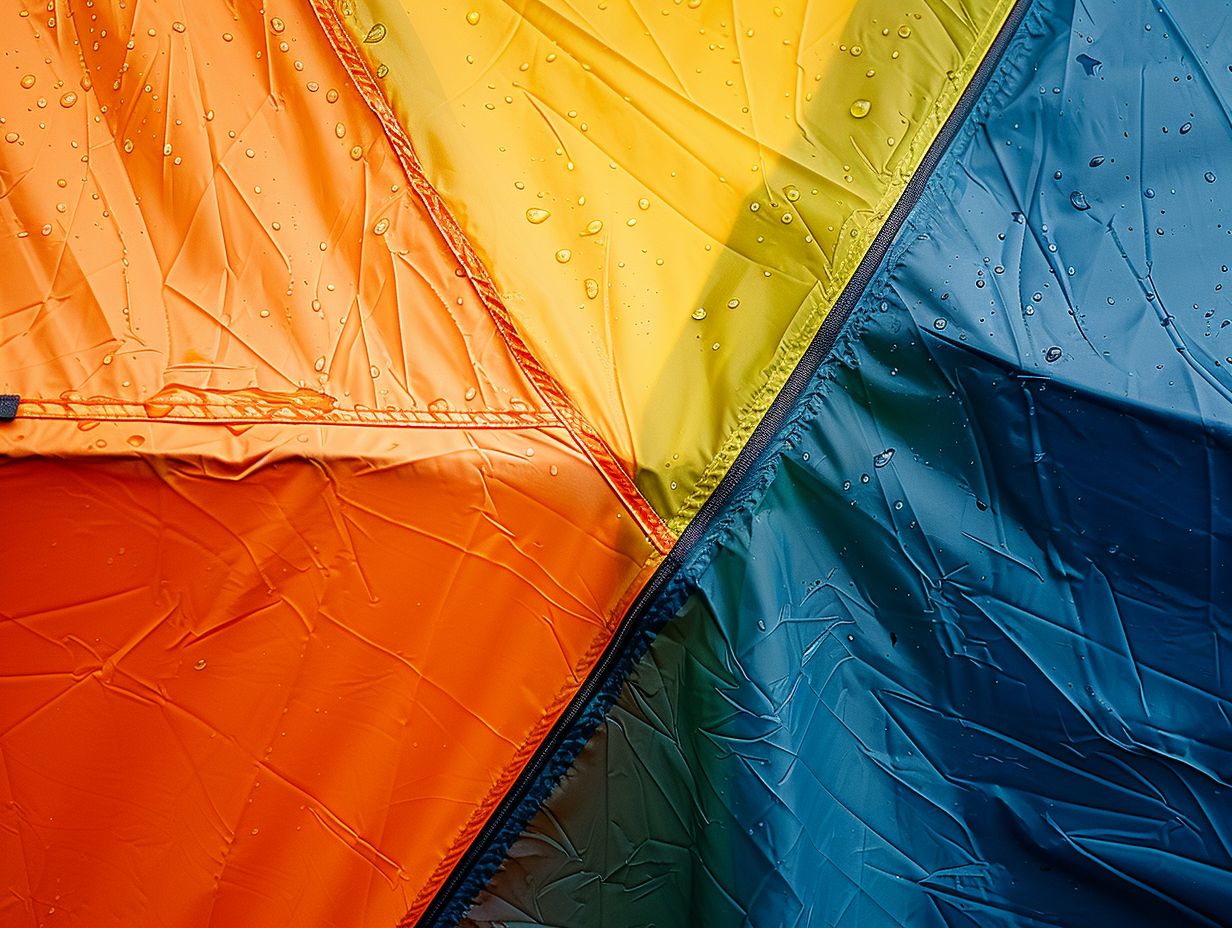Cotton and polyester are two of the most commonly used fabrics in the clothing industry. When it comes to jackets, both materials have their advantages and disadvantages.
One of the most important factors to consider is warmth. Which fabric is warmer for jackets – cotton or polyester?
Understanding fabrics is important when deciding which one is warmer. Cotton is a natural fiber that is breathable and comfortable to wear. On the other hand, polyester is a synthetic fabric that is lightweight and durable.
When it comes to warmth, cotton is a good insulator and can keep you warm in mild to moderately cold weather. Polyester, on the other hand, is a better insulator and can keep you warm in very cold weather. However, it is important to note that the warmth of a jacket depends on several factors, including the type of insulation used, the thickness of the fabric, and the design of the jacket.
Key Takeaways
- Cotton and polyester are both commonly used fabrics in the clothing industry.
- Cotton is a good insulator and can keep you warm in mild to moderately cold weather.
- Polyester is a better insulator and can keep you warm in very cold weather.
Contents
Understanding Fabrics
When it comes to choosing the right fabric for a jacket, it’s important to understand the properties of different materials. Two common options are cotton and polyester.
Cotton is a natural fiber that is known for its softness, breathability, and absorbency. Its weave can vary, but it is typically a plain weave or a twill weave. Cotton jackets are comfortable to wear and can provide warmth in moderate temperatures. However, cotton is not as insulating as other materials and can lose its warmth when wet.
Polyester, on the other hand, is a synthetic fabric that is known for its durability, wrinkle resistance, and ability to hold its shape. Its weave can vary as well, but it is typically a plain weave or a knit weave. Polyester jackets are great for colder temperatures as they provide insulation and retain warmth even when wet. Polyester is also water-resistant, making it a good choice for outdoor activities.
When it comes to warmth, polyester is generally considered to be warmer than cotton. This is because polyester is more insulating and can retain more heat. However, cotton is more breathable and can be a good choice for jackets worn in moderate temperatures.
It’s important to consider the properties of both fabrics when choosing a jacket. Factors such as the intended use of the jacket, the climate, and personal preferences should all be taken into account.
Cotton Jackets
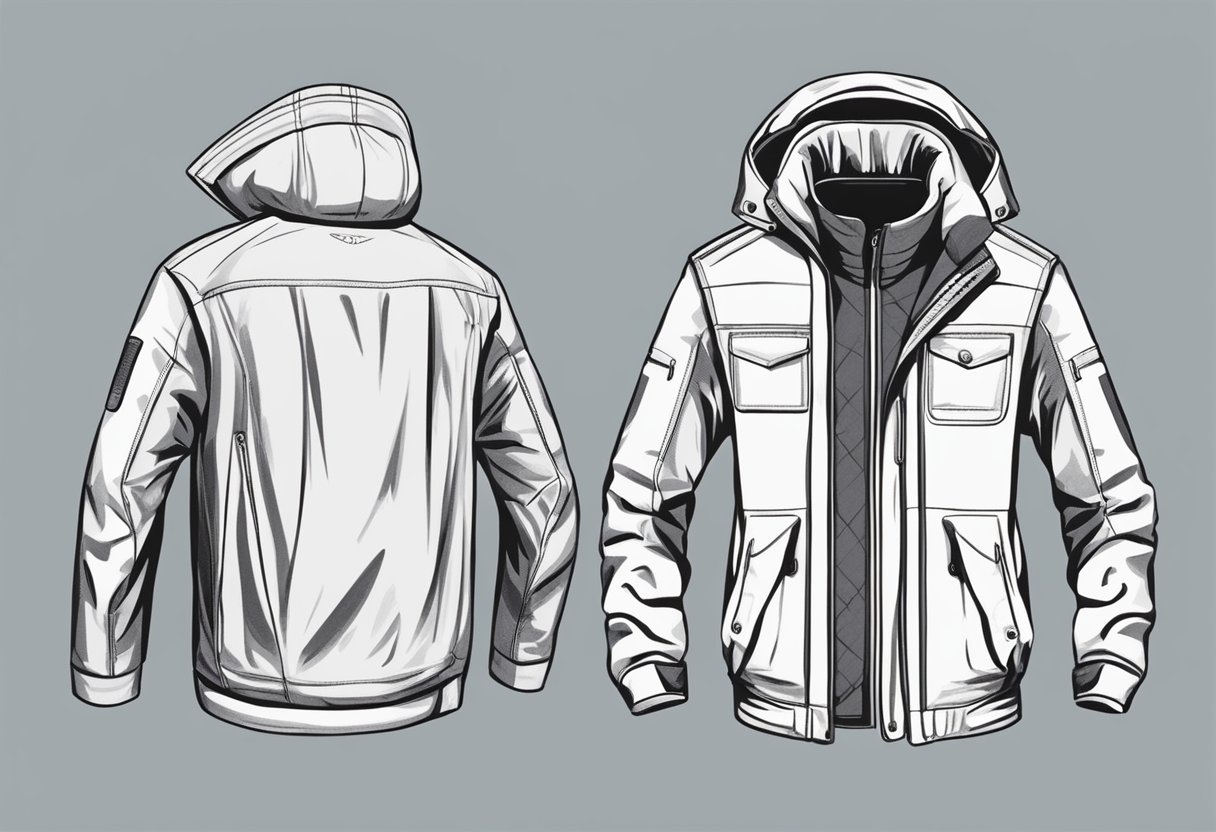
Cotton is a natural fiber that is widely used in the textile industry. It is a popular choice for jackets due to its softness, breathability, and comfort. In this section, we will discuss the properties of cotton and the different styles of cotton jackets.
Properties of Cotton
Cotton is a lightweight and breathable fabric that is ideal for warm weather. It has excellent wicking properties, which means that it can absorb moisture and keep the wearer cool and dry. Cotton is also hypoallergenic and does not cause skin irritation, making it a suitable choice for people with sensitive skin.
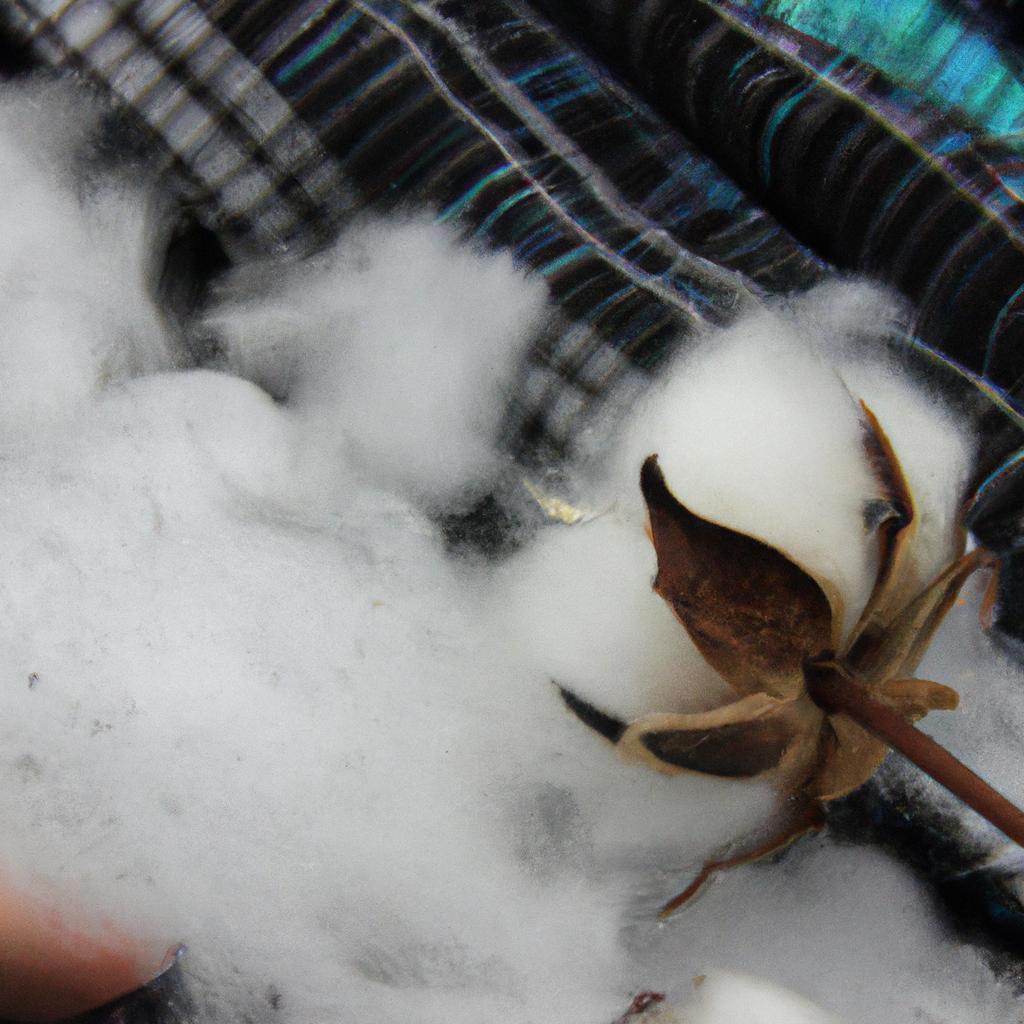
One of the drawbacks of cotton is that it tends to shrink when washed in hot water. To prevent this, it is recommended to wash cotton jackets in cold water and air dry them. Cotton is also susceptible to bacteria, rot, and mold if not properly cared for.
Styles of Cotton Jackets
Cotton is a versatile fabric that can be used to make a variety of jacket styles. Some popular styles of cotton jackets include:
- Denim Jackets: Denim is a type of cotton fabric that is known for its durability and ruggedness. Denim jackets are a classic style that can be worn with a variety of outfits.
- Corduroy Jackets: Corduroy is a type of cotton fabric that has a ribbed texture. Corduroy jackets are warm and cozy, making them a popular choice for fall and winter.
- Flannel Jackets: Flannel is a soft and warm cotton fabric that is perfect for cold weather. Flannel jackets are often lined with a warm material such as fleece to provide extra warmth.
In conclusion, cotton jackets are a popular choice for their breathability, comfort, and versatility. However, they require proper care to prevent shrinking and damage from bacteria, rot, and mold.
Polyester Jackets
Polyester is a popular synthetic material that is widely used in the textile industry. It is commonly used in the production of jackets and coats due to its durability, hydrophobic properties, and resistance to abrasions and stretching. In this section, we will explore the properties of polyester and the different styles of polyester jackets available in the market.
Properties of Polyester
Polyester is a lightweight material that provides excellent warmth and insulation. It is also highly breathable and moisture-wicking, making it an ideal material for outdoor activities. Polyester jackets are often used as a windbreaker due to their ability to block out wind and retain heat. Moreover, polyester is a hydrophobic material, meaning it repels water and dries quickly, making it suitable for wet weather conditions.

Polyester is also known for its durability and resistance to abrasions and stretching. It is a low-maintenance material that can withstand wear and tear, making it ideal for everyday use. Polyester jackets are available in a range of styles and designs, from casual to formal, and can be found in various colors and patterns.
Styles of Polyester Jackets
Polyester jackets come in a variety of styles to suit different purposes and preferences. One popular style is the polyester fleece jacket, which is made of a soft and warm synthetic material that provides insulation and comfort. Another popular style is the Gore-Tex jacket, which is a waterproof and breathable jacket that is ideal for outdoor activities.
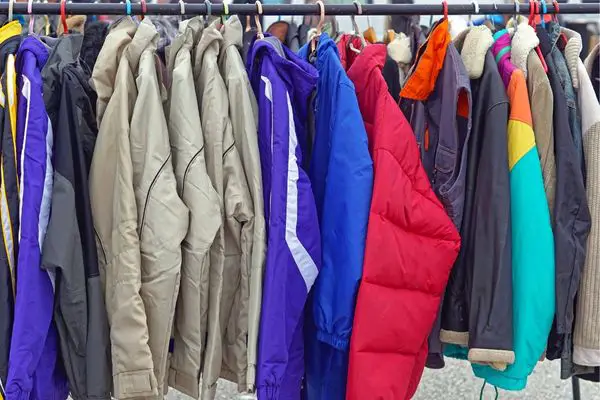
Other styles of polyester jackets include bomber jackets, parkas, and puffer jackets. Bomber jackets are a classic style that is both stylish and functional, while parkas are designed for extreme cold weather conditions. Puffer jackets are a popular style that provides warmth and insulation without adding bulk.
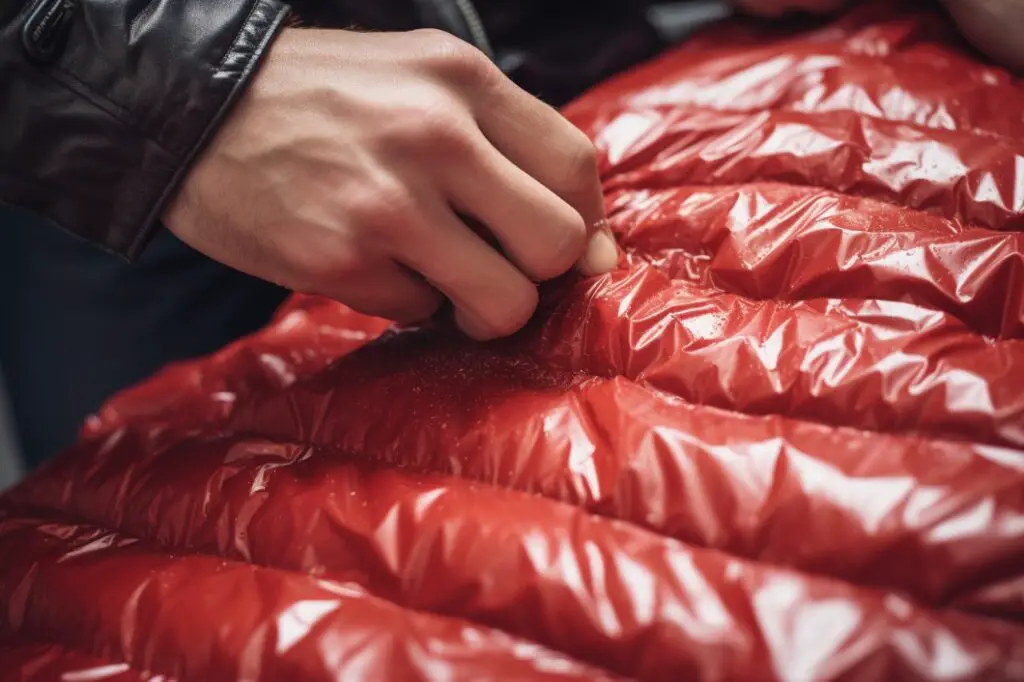
In conclusion, polyester jackets are a great choice for those looking for a durable, lightweight, and versatile jacket. With its excellent warmth, breathability, and hydrophobic properties, polyester is a popular material for outdoor activities and everyday wear. With a range of styles and designs available, there is a polyester jacket to suit every need and preference.
Insulation and Warmth
When it comes to choosing a jacket for cold weather, one of the most important factors to consider is insulation and warmth. In this section, we will explore the insulating properties of cotton and polyester, as well as layering techniques for maximum warmth.
Insulating Properties
Cotton is a natural fiber that is breathable and comfortable to wear. However, it is not the best insulator and can lose its insulating properties when wet. Polyester, on the other hand, is a synthetic material that is known for its insulating properties. It is often used in insulated jackets and other cold weather gear where down was traditionally used.
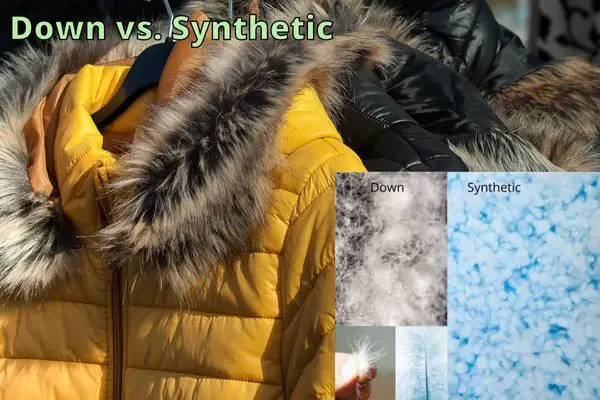
One important factor to consider when comparing cotton and polyester is fill power. Fill power is a measure of the loft or fluffiness of the insulation. The higher the fill power, the more air the insulation can trap, and the warmer the jacket will be. Synthetic insulation like polyester often has a higher fill power than cotton.
Layering for Warmth
Layering is a key technique for staying warm in cold weather. The three layers of clothing are the base layer, middle layer, and outer layer. The base layer is worn next to the skin and is responsible for wicking moisture away from the body. The middle layer provides insulation, and the outer layer protects against wind and water.
When it comes to choosing a jacket, it is important to consider how it fits into the layering system. An insulated jacket can serve as a middle layer, providing warmth and insulation. However, it is important to choose a jacket with the right level of insulation for the temperature and activity level.
In conclusion, while cotton is a comfortable and breathable material, it is not the best choice for cold weather gear. Polyester is a synthetic material that is known for its insulating properties and is often used in insulated jackets. Layering is a key technique for staying warm in cold weather, and an insulated jacket can serve as a middle layer for maximum warmth.
Weather Conditions and Fabrics
When it comes to choosing a jacket for cold weather conditions, it is important to consider the type of fabric used in its construction. Two common materials used for making jackets are cotton and polyester. While both fabrics have their advantages and disadvantages, the choice between them largely depends on the weather conditions the jacket will be worn in.
Water Resistance
In terms of water resistance, polyester is generally considered to be more effective than cotton. Polyester is a synthetic fabric that is naturally hydrophobic, which means it repels water. In contrast, cotton is a natural fabric that absorbs water easily. However, some cotton jackets are treated with a Durable Water Repellent (DWR) coating to make them more water-resistant.

Wind Resistance
Polyester is also more effective than cotton when it comes to wind resistance. Polyester fibers are tightly woven, which makes them less permeable to air. This means that jackets made from polyester are less likely to let wind pass through them, which can be beneficial in cold and windy conditions.
Cold Weather Fabrics
When it comes to cold weather fabrics, both cotton and polyester have their advantages. Cotton is a natural fabric that is breathable and comfortable to wear. It is also a good insulator, which means it can help keep the wearer warm in cold conditions. However, cotton is not as effective as polyester when it comes to moisture management. Cotton absorbs moisture easily, which can make the wearer feel cold and uncomfortable.
Polyester, on the other hand, is a synthetic fabric that is designed to wick moisture away from the body. This means that jackets made from polyester are less likely to become damp and uncomfortable in cold weather conditions. Polyester is also a good insulator, which means it can help keep the wearer warm in cold conditions.
Overall, the choice between cotton and polyester for a cold weather jacket largely depends on the specific weather conditions the jacket will be worn in. For cold and dry conditions, cotton can be a good choice due to its insulating properties. However, for wet and windy conditions, polyester is generally considered to be a more effective choice due to its water and wind resistance properties.
Additional Considerations
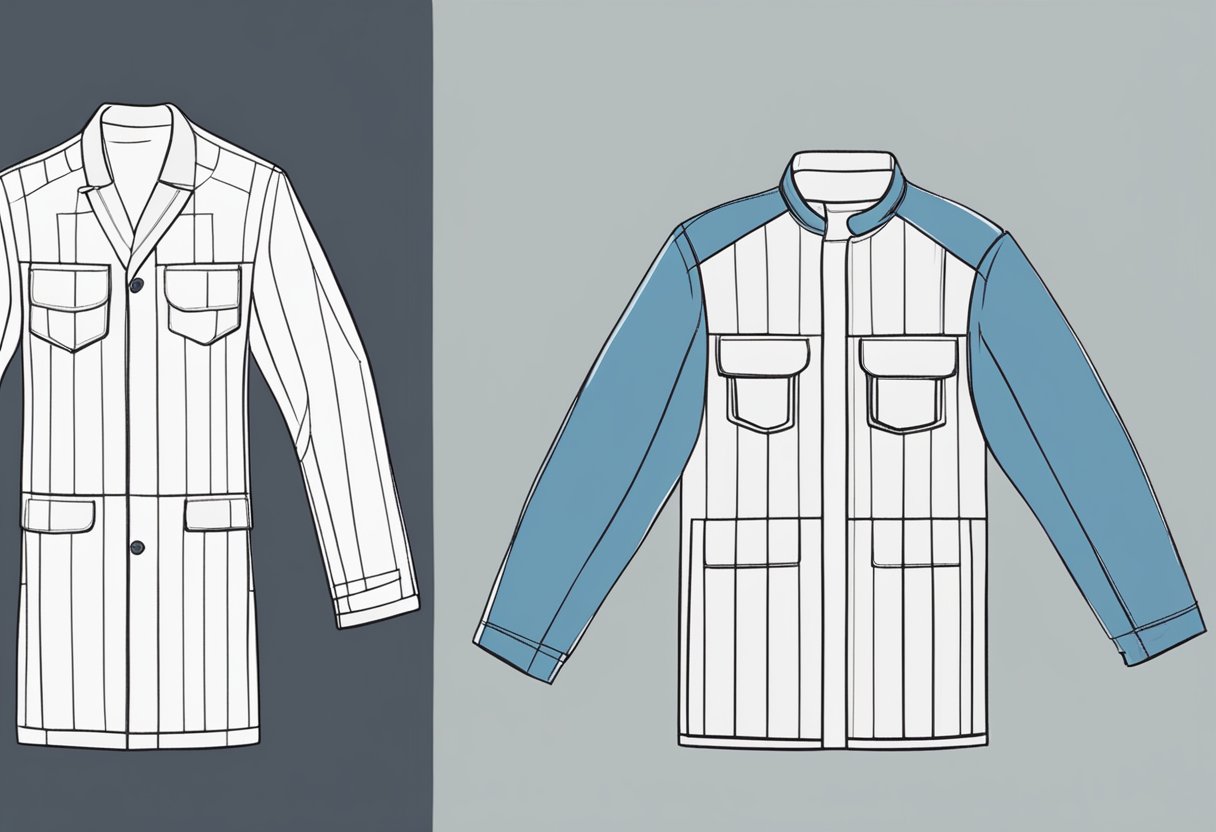
When deciding between cotton and polyester for a jacket, there are several additional considerations to keep in mind. These include price, durability and care, and the type of outdoor activities the jacket will be worn for.
Price Considerations
Cotton jackets are generally more affordable than polyester jackets. However, it’s important to note that the price can vary depending on the quality of the fabric and the brand. In general, cotton jackets are more budget-friendly, making them a popular choice for those looking for a cost-effective option.
On the other hand, polyester jackets tend to be more expensive due to the cost of the synthetic materials used in their production. However, they are often considered a good investment due to their durability and long-lasting nature.
Durability and Care
When it comes to durability and care, polyester jackets have the upper hand. They are resistant to wrinkles, shrinking, and stretching, making them a low-maintenance option. Additionally, polyester fabric has moisture-wicking properties, which means it can help keep moisture away from the body, making it a great choice for outdoor activities.

Cotton jackets, on the other hand, are more prone to wrinkles, shrinking, and stretching. They also tend to absorb moisture, which can be problematic in wet or humid conditions. However, cotton is a natural fabric and is less likely to trap bacteria and mold, making it a good choice for those with sensitive skin or allergies.
Outdoor Activities
The type of outdoor activities the jacket will be worn for is an important consideration when choosing between cotton and polyester. If the jacket will be worn for activities such as hiking, skiing, or snowboarding, a polyester jacket may be the better choice due to its moisture-wicking properties and durability.
However, if the jacket will be worn for more casual outdoor activities such as walking or running errands, a cotton jacket may be a good option due to its comfort and breathability.
In conclusion, both cotton and polyester have their own advantages and disadvantages when it comes to warmth and other factors. Ultimately, the best fabric for a jacket depends on the individual’s needs and preferences.
Conclusion
In the exploration of whether cotton or polyester is warmer for jackets, we’ve uncovered that each fabric possesses unique characteristics making them suitable for different weather conditions and uses. Cotton, a natural fiber, offers breathability and comfort, making it ideal for mild to moderately cold weather.
Its ability to provide warmth in moderate temperatures while being comfortable and hypoallergenic makes it a favorable choice for everyday wear and for those with sensitive skin. However, it falls short in insulation compared to polyester, especially when wet.
Polyester, a synthetic fabric, stands out for its superior insulating properties, making it a preferable choice for very cold weather. Its ability to retain warmth even when wet, coupled with its water-resistant qualities, renders it suitable for outdoor activities and wet conditions. Additionally, its durability and low maintenance care make it a long-lasting investment.
Both fabrics have their place in cold weather wear. Cotton is a great choice for those who value comfort and breathability in less extreme conditions, while polyester is the go-to for harsher, wetter, and colder climates. Your choice should be influenced by factors such as the intended use of the jacket, the climate you’ll be wearing it in, and personal preferences in terms of comfort and style.
Frequently Asked Questions
How Does Moisture Impact the Warmth of Cotton and Polyester Jackets?
Cotton absorbs moisture, which can lead to a loss of insulating properties when wet, making it less suitable for damp or rainy conditions. Polyester, being hydrophobic, repels water and retains its insulating properties even when damp, making it more suitable for wet conditions.
Can the Weave of the Fabric Affect the Warmth of a Jacket?
Yes, the weave of the fabric can significantly impact warmth. A tighter weave in both cotton and polyester provides better insulation and wind resistance. Cotton typically has a plain or twill weave, while polyester weaves vary but often include plain or knit styles.
Are There Any Environmental Considerations Between Cotton and Polyester Jackets?
Environmental impact is a key consideration. Cotton is a natural, biodegradable fiber but has a high water footprint and may involve pesticides in farming. Polyester is derived from petroleum, a non-renewable resource, and is less biodegradable, but has a lower water usage in production.
How Do Layering Techniques Differ Between Cotton and Polyester Jackets?
Layering with cotton jackets typically involves a moisture-wicking base layer to counteract cotton’s moisture absorption. With polyester jackets, layering is more straightforward due to its moisture-wicking properties, allowing for a comfortable base layer without specific moisture management.
What Are the Longevity and Maintenance Differences Between Cotton and Polyester Jackets?
Cotton jackets may require more care, as they are prone to shrinking and wrinkles, and can be damaged by bacteria and mold if not properly maintained. Polyester jackets are more durable, resistant to wrinkles, and easier to maintain, offering longer-lasting wear with less care.




